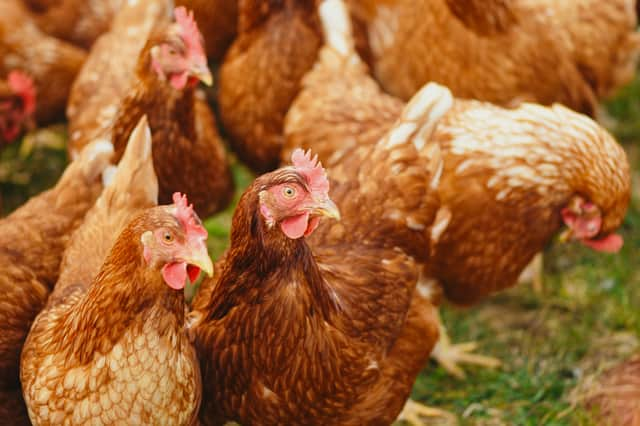New rules for bird keepers


Although no cases of avian flu have so far been confirmed in the town, Rotherham Council is advising people who keep birds — commercially or as pets — to take steps “to keep it that way”.
An Avian Influenza Prevention Zone (AIPZ) came into force on Monday, November 29, and legally requires all keepers to house their birds to separate them from wild birds and help limit the spread of the disease.
Advertisement
Hide AdAdvertisement
Hide AdRMBC is urging all poultry, game and captive bird keepers to ensure they are aware of new extra measures after an increasing number of recent confirmed cases of avian flu across England.
RMBC’s assistant director of community safety and street scene, Tom Smith, said: “Whilst there are currently no confirmed cases of avian flu in Rotherham, we are asking people who keep birds to take steps to keep it that way.
“Whether you keep a few birds in your back garden or are running a large-scale commercial operation, you should maintain good biosecurity at all times and keep a close watch for signs of disease.
“If you have any concerns about their health, seek prompt advice from your vet.
Advertisement
Hide AdAdvertisement
Hide Ad“However, Public Health England has confirmed the risk to the public is very low, and the Food Standards Agency advises that bird flu poses a very low food safety risk for UK consumers.”
The new rules for poultry and captive bird keepers include:
Housing or netting all poultry and captive birds.
Cleaning and disinfecting clothing, footwear, equipment and vehicles before and after contact with poultry and captive birds — if practical, use disposable protective clothing.
Reducing the movement of people, vehicles or equipment to and from areas where poultry and captive birds are kept, to minimise contamination from manure, slurry and other products.
Using effective vermin control.
Thoroughly cleaning and disinfecting housing at the end of a production cycle.
Advertisement
Hide AdAdvertisement
Hide AdKeeping fresh disinfectant at the correct concentration in areas where people use it, such as farm entrances and before entering poultry and captive bird housing or enclosures.
Minimising direct and indirect contact between poultry/captive birds and wild birds, including making sure all feed and water is inaccessible to wild birds.
Keepers with more than 500 birds should also take extra measures including:
Identifying clearly defined areas where access by non-essential people and vehicles is restricted.
Advertisement
Hide AdAdvertisement
Hide AdCleaning and disinfecting vehicles, equipment, and footwear.
Keeping records of vehicles and personnel entering and leaving the live-bird area.
RMBC said prevention zone rules would be in place until further notice and will be kept under review while the threat of bird flu is monitored.
To help bird keepers with the new rules DEFRA (the Department for Environment, Food and Rural Affairs) has updated its biosecurity guidance and published a biosecurity self-assessment checklist which can be found on the gov.uk website.
Members of the public should report dead wild birds to the DEFRA helpline on 0345 933 5577 and report any suspicion of disease to the Animal and Plant Health Agency (APHA) on 03000 200301.